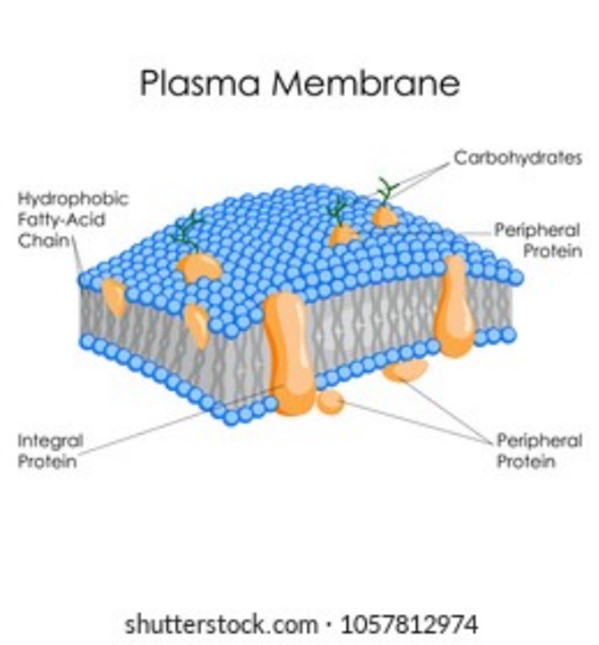Which of the following is a consequence of increased viscosity of a fluid?
Particles have a decrease in mobility.
The fluid will have a lower density.
The fluid will have a higher flow rate.
The fluid will have a higher pressure.
The Correct Answer is A
An increase in viscosity of a fluid results in a decrease in mobility of particles.
Viscosity is the resistance of a fluid to a change in shape or movement of neighbouring portions relative to one another.
It denotes opposition to flow and may be thought of as internal friction between the molecules.
Choice B is incorrect because an increase in viscosity does not affect the density of a fluid.
Choice C is incorrect because an increase in viscosity results in a decrease, not an increase, in flow rate.
Choice D is incorrect because an increase in viscosity does not affect the pressure of a fluid.
Nursing Test Bank
Naxlex Comprehensive Predictor Exams
Related Questions
Correct Answer is D
Explanation
The plasma membrane is the organelle that encapsulates the contents of the cell and plays a vital role in regulating the movement of substances in and out of the cell.
It is a selectively permeable barrier that separates the internal environment of the cell from the external environment.

Choice A is incorrect because ribosomes are organelles involved in protein synthesis, not in regulating the movement of substances in and out of the cell.
Choice B is incorrect because the nucleus is an organelle that contains the cell’s genetic material, not in regulating the movement of substances in and out of the cell.
Choice C is incorrect because mitochondria are organelles involved in energy production, not in regulating the movement of substances in and out of the cell.
Correct Answer is A
Explanation
The body regulates blood pH through several mechanisms, including chemical buffers, the respiratory system, and the urinary system.
The respiratory system can adjust blood pH by changing the rate of respiration to remove or retain CO2.
When there is excess acid in the blood, the respiratory rate increases to remove more CO2, which helps to raise blood pH.
Choice B is incorrect because decreasing the respiration rate would retain CO2, which would lower blood pH.
Choice C is incorrect because increased water intake would not directly affect blood pH levels.
Choice D is incorrect because decreased water intake would not directly affect blood pH levels.
Whether you are a student looking to ace your exams or a practicing nurse seeking to enhance your expertise , our nursing education contents will empower you with the confidence and competence to make a difference in the lives of patients and become a respected leader in the healthcare field.
Visit Naxlex, invest in your future and unlock endless possibilities with our unparalleled nursing education contents today
Report Wrong Answer on the Current Question
Do you disagree with the answer? If yes, what is your expected answer? Explain.
Kindly be descriptive with the issue you are facing.
